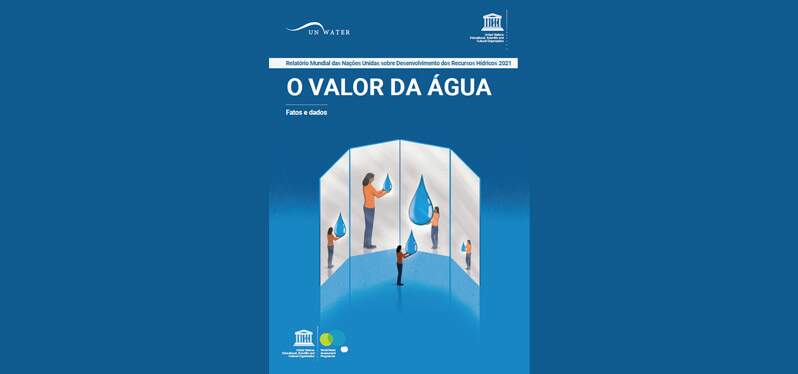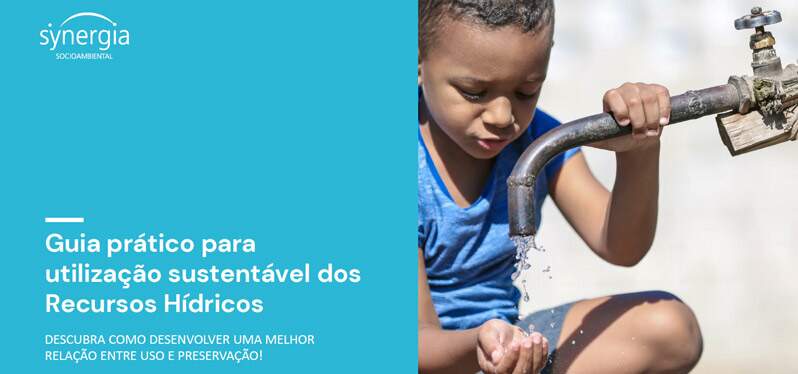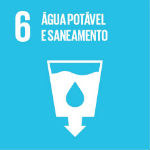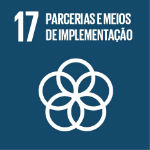Posted in: 05/25/2021
For you, what is the value of water? Beyond the monthly financial costs, itemized in invoices, can you understand the real value that this resource has?
Worldwide, an estimated 2.2 billion people (29% of the world’s population) live without access to potable water, and 4.2 billion people (55% of the world’s population) lack access to sanitation services. In fact, we have already talked about the risks that the lack of sanitation and treated water can cause.
We are returning to the subject because the issue of water sustainability is a priority for Synergia. We have our own team and develop our own methodologies to offer solutions to the problem, with innovation, cost-effectiveness, and territorial vision.

So today we bring you a new perspective on the use and value of water, presented in the United Nations World Water Development Report 2021.
Access the Portuguese versions of the report: Facts & Data|Executive Summary
The UN agencies for Education, Science and Culture (UNESCO) and for Food and Agriculture (FAO) and the Global Compact Network Brazil have recently released the United Nations World Water Development Report 2021 (WWDR).
Considered the main UN report on water in the world, the 2021 edition brought the theme “The Value of Water“, with important information about water use and indications that can help implement sustainable and efficient water management.
Following the 5 principles for valuing water, established by the UN and the World Bank at the 2019 High-Level Panel on Water, the report “The Value of Water” proposes changes the way water is valued along different lines – political, social, and economic – demonstrating that valuation will depend on varying circumstances.
But before we talk about the different assessments, let’s learn what the 5 principles of water valuation are, according to the UN:
(Original text, in English, published in: High Level Panel on Water 2019, Principles on Valuing Water.)
It is important to note that when we talk about water valuation, we are not only dealing with the economic aspect, but with all the others that are related to the uses of water in society, such as the ecological and environmental, cultural, and social aspects.
This is the report’s main proposal, since considering all these characteristics, thinking about integrated water management, may be the solution to avoid water scarcity, one of the issues that already causes concern and, probably, one of the greatest risks for the future of the planet.

The report “The Value of Water” brings updated and alarming data about water consumption in the world, especially those related to developing countries, which need more attention in the construction of public policies and infrastructure for water management.
In addition to demonstrating the prospects, challenges, and opportunities, highlighting the need for better water management in order to meet the Sustainable Development Goals (SDGs) of the United Nations’ Agenda 2030, the report points out the difference between the “value” and “valuation” of water.
Thus, we have the perspective of value and valuation of water in relation to the environment, the value of water infrastructure, in relation to water supply, sanitation, and hygiene services, in relation to its use in food and agriculture, in the energy, industry, and trade sectors, and finally in relation to the cultural values of water.
Regional prospects are also analyzed, with data related to Sub-Saharan Africa, the Pan-European Region, Latin America and the Caribbean, Asia and the Pacific, and the Arab States.
Among the most alarming data are the 6 times increase in freshwater consumption in the last century, and the prospect of advancing at a rate of 1% per year, driven by population growth, economic development, and changing consumption patterns.
The report also highlights the economic water scarcity, suffered by many regions in which there are water resources but no infrastructure to access them. Also according to the report, the predicted growth in global water consumption is 25% by 2030.
Knowing this data is extremely important for strategic planning, creation of measures, and integrated public policies for water resource management. But, according to the report, the initiative cannot be unilateral.
Despite the discouraging outlook regarding the future of water resources, the UN report points to a solution: the development of integrated water policies that consider the different values related to water use and involve the participation of diverse groups in decision-making.
For this, it is important to adopt the hydro social approach, used by Synergia to address the issue. In other words, it is necessary to engage, commit, and guarantee responsibility among all the agents involved, users and managers, transforming conflicts of use into agreements, incorporating technologies that offer transparency and credibility to the data, that indicate restorative and accessible solutions.
*Do you want to know more about water resources management? Then, download the Practical Guide for the Sustainable Use of Water Resources, produced by experts from Synergia Consultoria Socioambiental.*



Sign up and receive our news.